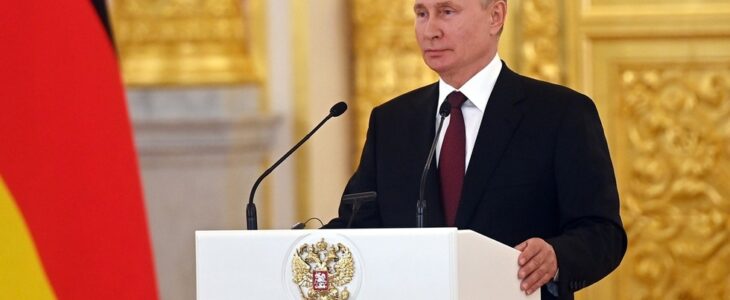
Armenia and Azerbaijan have agreed to properly demarcate their border, Russia’s President Vladimir Putin said on Friday, following Sochi talks with the leaders of each nation, aimed at bringing the decades-long conflict to an end.
Armenia’s PM Nikol Pashinyan and Azerbaijan’s President Ilham Aliyev were hosted by Putin in the southern Russian resort city of Sochi on Friday. Ahead of the trilateral talks, Putin held separate talks with Aliev, and later spoke tete-a-tete with Pashinyan after the three-way meeting.

The talks proved to be very “constructive”, Russia’s president said after the closed-doors meeting with the two leaders, revealing that the rivals had managed to find common ground on multiple issues, including the establishment of a proper border between Armenia and Azerbaijan.
“We have agreed on a number of issues that I consider to be key,” Putin stated. “The first of them is the creation of mechanisms (we agreed to do this by the end of this year) for the demarcation and delimitation of the border between the two countries. Hope this happens as soon as possible. There are no obstacles to the creation of these mechanisms.”

The parties have also “made a significant progress” on humanitarian issues, Putin said, without providing any further detail. Development of economic ties, and “unblocking transport corridors,” including railway and roads in the region, have been discussed “in great detail” as well.
The trilateral talks come shortly after deadly border skirmishes between Armenian and Azerbaijani militaries that occurred earlier that month. The clashes resulted in soldier deaths and loss of military hardware on both sides, prompting fears that the situation may spin into another full-blown war.
Azerbaijan and Armenia remain locked in a conflict throughout their modern independent history. The main source of rivalry between the two nations is the Nagorno-Karabakh – a region in the eastern part of Azerbaijan, predominantly populated by ethnic Armenians and bordering Armenia.
The historically disputed region broke away from Azerbaijan following a bloody war in the wake of the Soviet Union’s collapse, repeatedly becoming the scene of armed escalations between the two nations. The latest major one occurred in the region last year, resulting in Azerbaijan regaining control over vast parts of the disputed territory.
The fighting ended in an uneasy truce mediated by Moscow, with Russian peacekeepers deployed to observe the agreement. The outcome was widely perceived by the Armenians as a humiliating defeat, prompting mass-protests against Pashinyan’s government.
Credit: RT News
